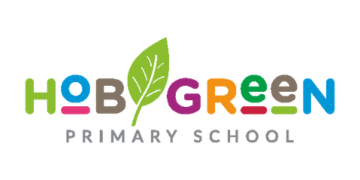Thousands of children across the England will take part in new trials to assess whether skills like music, drama and journalism can boost their achievements at primary school.
The Education Endowment Foundation (EEF) and the Royal Society of Arts (RSA) announced five trials to test the impact of different “cultural learning strategies” as part of the ‘Learning about culture’ programme, which is will be rolled out to 9,000 pupils across 400 primary schools from September next year.
The impact on academic attainment, as well as skills and behaviours like resilience, self-confidence and creativity, will be independently evaluated by the University of London’s Institute of Education and by the Behavioural Insights Team.
Schools are being sought to take part in the trials, particularly in areas of high deprivation and low art participation.
All children, including those from disadvantaged backgrounds, deserve a well-rounded, culturally-rich education
Sir Kevan Collins, the EEF’s chief executive, said the trials would allow cultural learning opportunities to thousands of primary pupils “who might not otherwise have the opportunity”, and provide “much-needed evidence on the impact of different approaches”.
“With schools increasingly accountable for the impact of all their spending decisions on pupil attainment, there is a urgent need for more and better evidence on the relative benefits of different approaches and strategies,” he said.
For ‘The power of pictures’ trial, delivered by the Centre for Literacy in Primary Education, year 5 students and their teachers will work with author-illustrators to use picture books to boost reading and writing skills, and develop techniques to use illustration to support reading comprehension and creative writing.
‘The craft of writing’ will meanwhile investigate whether developing teachers’ skills as writers improves year 5 pupils’ motivation and confidence with writing. The project, developed jointly by Arvon, the University of Exeter and the Open University, will see teachers working with professional writers.
The London Bubble Theatre Company’s ‘Speech bubbles’ programme will have teaching assistants working with theatre practitioners to deliver weekly drama sessions over three terms. The programme, aimed at five- to seven-year-olds who have difficulty communicating or have poor attention skills, will also invite parents to take part.
Journalists will help pupils set up their own newsroom, write and publish newspaper articles and put together radio and TV packages in Paradigm Arts’ ‘Young journalist academy’ project. It will assess whether journalism can boost year 5 pupils’ literacy skills, as well as their confidence, communication skills and collaborative working.
Finally, ‘First thing music’ will teach year 1 students the basics of music with daily singing and musical games. The programme, delivered by Lindsay Ibbotson and Tees Valley Music Service, will see teachers trained by members of the British Kodály Academy and is hoping to develop literacy, social and emotional skills.
The trials have been welcomed by Matthew Taylor, the chief executive of the Royal Society of Arts.
He said evidence of how the arts made a difference to learning could help make the case for strengthening its place in schools. But he said the evidence alone could not “guarantee effectiveness”.
“That is why we’re pleased to be working with arts educators and teachers around the country, to help them turn evidence into more effective practice and ensure that all children can get the full benefits of participation,” he said.






Is the teaching profession so pathetic that it needs an EEF study before it can deliver drama and music to primary school children? I really feel like screaming!
Do our private/public schools need a study like this to tell them what to do? Where does all the money come from to pay for all this research bunkum?
Even if these projects show some gains (which they definitely will, although not statistically significant gains), how are they going to be replicated on a national scale?
“Common Sense”, does not seem that common in the educational research arena, but I guess it pays well.
My concern is that if the interventions show little or no increase in performance in tests in a narrow range of subjects then creative subjects will be downgraded further. But academic performance in reading, maths and writing isn’t the sole purpose of schools. Education should nourish the soul as well as the brain.